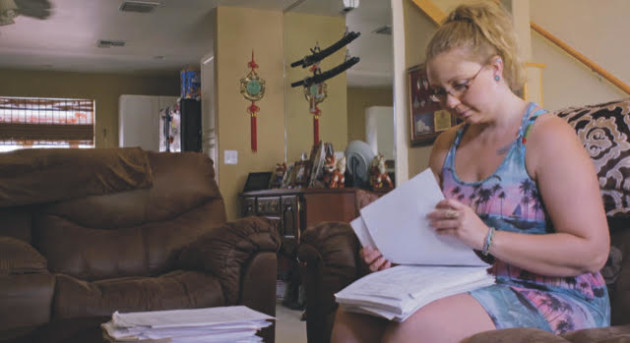The Lilith Blog
March 16, 2020 by Yona Zeldis McDonough
The Fraught and Frayed Bonds of Sisterhood
The fraught, frayed bonds of sisterhood is a subject beautifully explored by Lynda Cohen Loigman in The Wartime Sisters (St. Martin’s Press) a WWII-era novel that probes the connection between Millie—beautiful, impractical—and Ruth, pragmatic yet desperate to protect the life she’s carved out for herself.
Loigman talks to Fiction Editor Yona Zeldis McDonough about how she found her way to their story and where it took her.
Yona Zeldis McDonough: What attracted you to the subject of the Springfield Armory and how did you go about doing your research?
- No Comments
March 15, 2020 by Eleanor J. Bader
A Jewish Journey to Montgomery
Between 1877 and 1950, approximately 4400 African American women and men were lynched in the United States. Billie Holiday sang of them, “strange fruit hanging from the sycamore tree,” in Abel Meeropol’s iconic 1939 song, but it was not until 2018 that civil rights activist and attorney Bryan Stevenson’s Equal Justice Initiative raised enough money to open the commemorative Legacy Museum and National Memorial for Peace and Justice in Montgomery, Alabama.
Both sites are intended to acknowledge the racism at the heart of America’s story and address the many ways that the heritage of bigotry continues to fester and poison the body politic.
- 1 Comment
March 14, 2020 by Amy Stone
Rachel Cowan’s Last Year– ‘Dying Doesn’t Feel Like What I’m Doing’
None of us has died. No matter how close we’ve been to those who have died, it wasn’t us. Death is still a second-hand experience until you’re the one.
So when a loving friend and filmmaker recorded the last 15 months in the life of mindfulness teacher and rabbi Rachel Cowan, I wanted to learn what wisdom came to her with a diagnosis of brain cancer.
- 1 Comment
March 13, 2020 by admin
When the Jewish Fight for Abortion Came to My Own Backyard
My mother likes to say that I’ve been involved with social justice since I was in the womb. I trick-or-treated for UNICEF and tagged along with her to B’nai Brith Women meetings and pro-choice rallies starting in the 1970s.
I am now Women of Reform Judaism (WRJ) Southwest District President, where I lead Reform Jewish sisterhoods in eight states across the Southwest. It has been so meaningful to lead this group of women and build power to fight for our rights in a time when Southern lawmakers seem more eager than ever to restrict them.
- No Comments
March 10, 2020 by admin
What Purim in Israel Taught me About Inequality
When I was growing up in Israel I never looked forward to Purim. Pestering my overworked mother for a costume was bad enough, but the ritual I dreaded most was the mishloah manot—an exchange of baskets of candy and dried fruit. Wrapped in tinted cellophane and displayed on the teacher’s desk, these baskets let everyone know just how rich or poor we were. When the teacher redistributed the packets, everyone hoped to get the treasure troves that the well-to-do Ashkenazi kids brought. As for the rest of us, the immigrants and the Mizrahis, we braced ourselves for the grunts of disappointed and muttered insults with which our offerings would be received.
- No Comments
March 5, 2020 by Chanel Dubofsky
What Happened at the Supreme Court Yesterday?
“Looming” is an appropriate word to describe the atmosphere around the current abortion rights case before the Supreme Court. On March 4th, oral arguments were heard in June Medical Services V. Russo, while outside the court, pro-choice activists, along with anti-abortion protesters, rallied.
While a decision won’t come from the court until this summer, here’s what you should know right now about the case and its implications for abortion access.
What is June Medical v. Russo?
This case is a challenge to a Louisiana law (Louisian Act 620, or Louisiana Unsafe Abortion Protection Act), enacted in June 2014, which requires abortion providers to have admitting privileges to a hospital within 30 miles of where the abortion is performed. June Medical is identical to Whole Woman’s Health v. Hellerstedt, struck down in Texas in 2016, declaring that requiring admitting privileges placed an “undue burden” on those seeking abortion care. In September 2018, the Fifth Circuit Court of Appeals revisited the 2016 decision and declared that, unlike in Texas, Louisiana actually needs the admitting privileges law to be in place in order to ensure the health and well-being of pregnant people. The question before the Supreme Court is whether or not Louisiana can enact Act 620, or if the law violates the right to abortion access.
- No Comments
March 4, 2020 by Eleanor J. Bader
The New Organization Uniting Allies to Combat Racism
When the National Anti-Racism Alliance (NARA) began to come together in Spring 2019, its purpose was explicit: “a nonviolent community of people who think racism is out of control in this country and who are publicly willing to identify themselves as anti-racist fighters.”
NARA’s founder, Mark Naison—an African American Studies and History professor at Fordham University—welcomed any-and-all but emphasized that “the NARA label is particularly important for anti-racist whites to display, as it lets our friends of color know that they can count on us in a crisis to stand with them.”
Rhode Island activist Nomi Hurwitz is one of NARA’s moderators, facilitating a largely-online discussion—on Facebook—between members who share information, debate strategy and tactics, and address the many ways that racial bias poisons our lives.
She and Eleanor J. Bader spoke by phone in mid-February.
Eleanor J. Bader: What drew you to NARA?
Nomi Hurwitz: I have known Mark Naison for a number of years. I met him through friends on Facebook and have benefited from reading his work. When I heard that he had started NARA, I wanted to join.
I’ve been fighting against racism for a long time. I started at 18. Now, more than 30 years later, I want to learn more about how to undo it, how to confront it when I see someone being harmed or hear a derogatory comment.
In Providence, where I live, I’ve heard white people say things that are disrespectful to African American or Latinx people, things like ‘They only have their positions because of affirmative action.’ I’ve heard white people blame their lack of success—that they can’t get published, for example—on the fact that they’re white. These comments are racist. And they can be lethal. Twenty years ago, Providence off-duty police officer, Cornell Young, Jr., an African American, was shot and killed by two white officers who did not recognize him in plainclothes when he attempted to intervene and stop a crime that was then in progress.
- No Comments
March 3, 2020 by Chanel Dubofsky
When a Fetus Gets Legal Rights, Guess Who Suffers?
At the center of the new documentary film Personhood is Tammy Loetscher, a Wisconsin woman who, after losing her health insurance, experienced debilitating depression from a thyroid condition. Without access to prescription drugs, Tammy turned to self-medicating with meth, which she stopped after learning she was pregnant. After she reached out to her doctor for help, the result was Draconian in ways that, unfortunately, you can imagine. (Spoiler alert: A lawyer was appointed for Tammy’s fetus, and not for Tammy.)
Let’s start here: reproductive justice is the right to have children or not have them, and to raise the children you have in a safe environment. Reproductive justice, a framework founded by Black women, goes beyond notions of “choice” and “rights” to remind us that without access to reproductive health services, such as prenatal care, abortion and contraception, these services and the laws that make them available may as well not exist. Keep this definition in mind when you’re watching Personhood, the documentary film about what happens when a fertilized egg is given the same rights as—sometimes even more rights than–a fully formed human being, making the person carrying that egg vulnerable to a barrage of laws which take any opportunity to punish her. 
- No Comments
February 27, 2020 by Arielle Silver-Willner
I Wasn’t Ready for My Bat Mitzvah at 13.

My Bat Mitzvah was a hit. After the service, I was approached by relatives, friends, and congregation members wishing me mazel tov and telling me what a great job I had done. So poised! So insightful! So well-spoken! But here’s the thing—I wasn’t.
I should mention that I had an untraditional bat mitzvah—my family belonged to a Humanistic Jewish congregation that aims to celebrate Jewish traditions, history, and values. The “cantor” adapts many of the old classics to focus on peace and love instead of god. The congregation doesn’t even own a Torah. And for this, I am grateful; it was wonderful to be part of the Jewish community in a way that was consistent with my family’s varying degrees of atheism.
- No Comments
February 25, 2020 by Liba Vaynberg
My Father’s Daughter
I couldn’t shut up about Papa. In fifth grade, this kid Neil was sitting next to me on the bleachers. Los Angeles. We were sweating, waiting for a parent to put us in a car and out of our misery. I must have been going on. Finally, Neil turned to me and said, “Is your dad dead or something?”
I went red. Then silent. Then I must have cried. The next day Miss Campeau insisted that Neil apologize.
Papa shaved in the mornings with a little yellow brush while I read the back of the cereal box and listened to his pocket radio on the kitchen table. Then the drive to school: major battles of World War II and how to orient yourself using the sun and how to spell state names on license plates. “Mississippi” amazed him every time. I always got it right.
- No Comments
 Please wait...
Please wait...